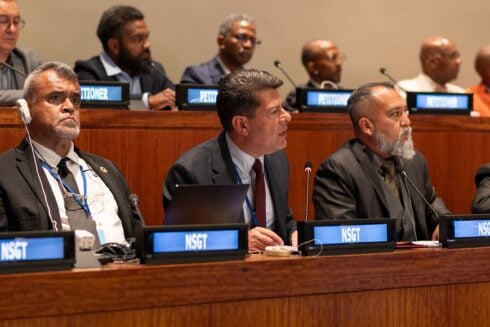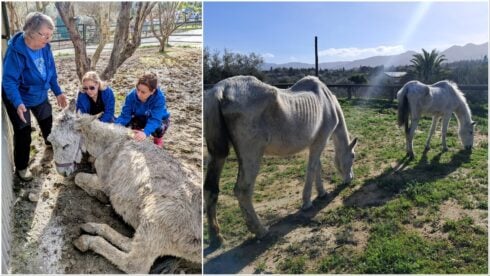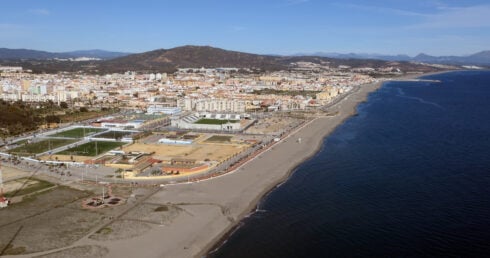THE UK has reaffirmed its commitment to the sovereignty of Gibraltar and the Falkland Islands in light of the agreement to hand the Chagos Islands to Mauritius.
The shock decision, announced last week, sparked fears in other British Overseas Territories that the government’s resolve to defend their sovereignty may be weakening.
But Foreign Minister David Lammy told the Commons in London that the status of these territories is ‘not up for negotiation.’
He declared the circumstances ‘not comparable’ and added: “The government remains firmly committed to modern partnerships with our overseas territories based on mutual consent.”

The statement will alleviate concerns that may have been rumbling in Gibraltar and should go some way to heading off any Spanish attempt to capitalise on the situation with the Chagos Islands.
Meanwhile, speaking at the United Nations General Assembly yesterday, Gibraltar Chief Minister Fabian Picardo hailed the right to self-determination which ‘underpins the historic agreement [..] between the United Kingdom and Mauritius, completing Mauritius’ decolonisation.’
Referring to UN resolutions that Spain relied upon to forward its argument that sovereignty of Gibraltar should be given to Madrid, Picarod called them ‘legally worthless.’
“Every year we hear the Spanish representative […] talk about resolutions of the General Assembly, adopted more than half a century ago, which they say support their sovereignty claim over our homeland,” he told the Fourth Committee, also known as the Committee on Decolonisation.
“It is undoubtedly embarrassing for the existing, socialist, progressive government of modern Spain to have to rely on Resolutions obtained here by what even they describe as the fascist Government of 1960s Spain.
“I remind the Committee that the last resolution voted on was in 1969, when Spain was still in dictatorship and Gibraltar was the only representative democracy on the Iberian Peninsula.”
He concluded by telling the committee that ‘Gibraltar cannot legally be decolonised [and integrated] into Spain.’
“In fact, such an action would not amount to decolonisation – it would result in the recolonisation of Gibraltar, but by a different colonial power!”
The primary purpose of the Fourth Committee is to encourage non-self-governing territories to decolonise, helping them to achieve independence or self-government.
Gibraltar has been listed as a ‘non-self-governing’ territory since 1946, despite the fact that its 1969 constitution granted it its own Parliament, House of Assembly, Executive Council and a Bill of Rights.
The Fourth Committee has never visited Gibraltar to inspect whether it is self-governing or not because Spanish diplomats have consistently blocked it.
Click here to read more Gibraltar News from The Olive Press.








